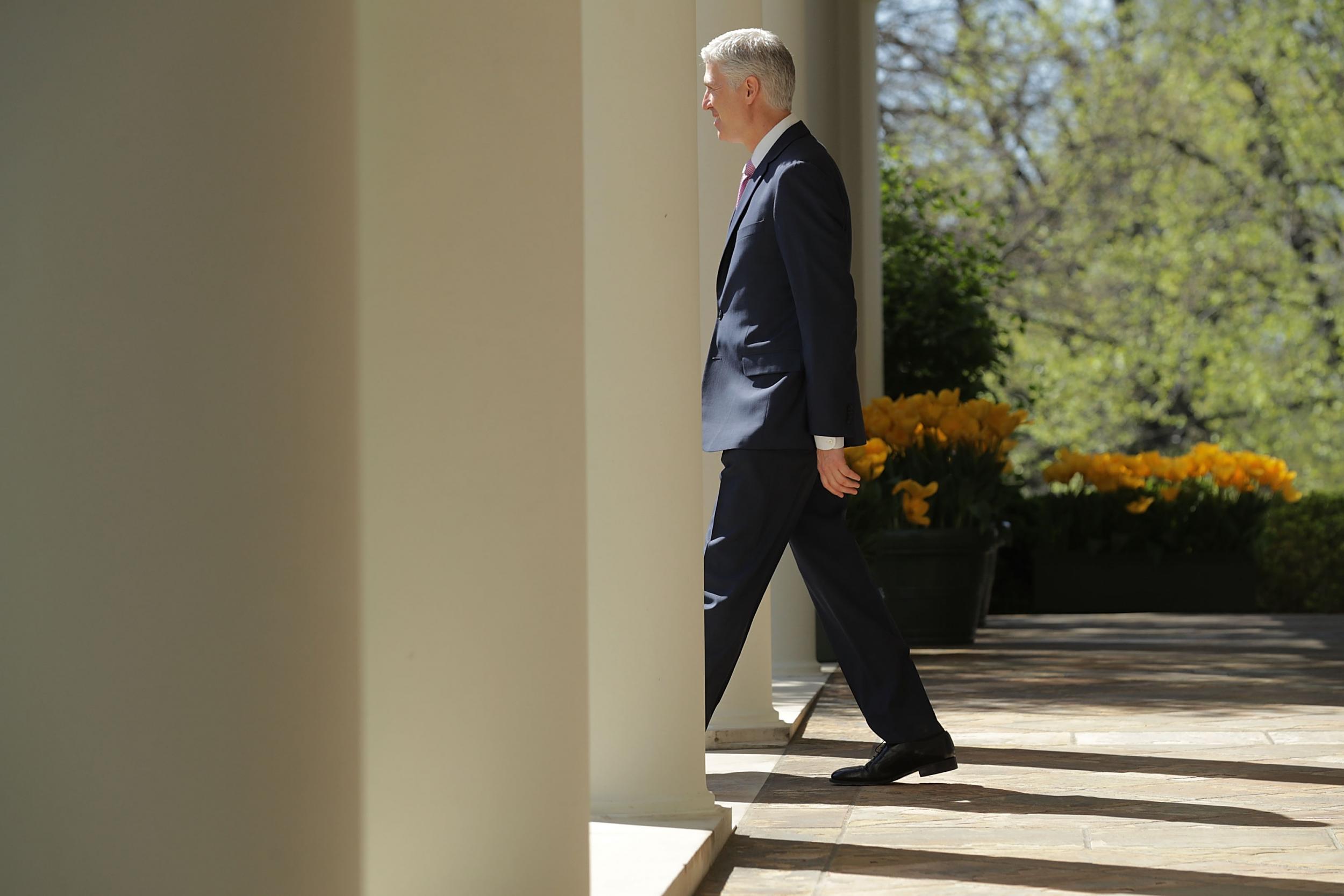Trump’s Supreme Court pick uses first vote to allow the execution of a disabled black man
Seven more men face execution in Arkansas under the state's legally contested plan

In his first decision as a US Supreme Court Justice, Neil Gorsuch cast the deciding vote allowing the state of Arkansas to execute a death row inmate.
The Supreme Court voted late Thursday night to allow Arkansas to execute Ledell Lee, a 51-year-old man convicted of killing a young woman in 1995. Mr Lee maintained his innocence through the moment of his execution.
The execution is part of Arkansas’ legally contested plan to execute eight inmates by the end of the month. The schedule has been delayed by a series of lower court decisions concerning – among other things – multiple drugs used in the lethal injection cocktail. One drug, the sedative midazolam, has been cited in multiple painful, botched executions. Another drug, potassium chloride, was used despite protests from the drug manufacturer.
Mr Lee’s lawyers had also issued several appeals centered on issues with Mr Lee’s trial: His first lawyer, for instance, showed up to the courtroom drunk. The judge in his case was having an affair with the assistant prosecutor. His mental disabilities, stemming from fetal alcohol syndrome, were never mentioned to the court or jury. A request for DNA evidence was rejected by the state.
On Thursday night, Mr Gorsuch joined Chief Justice John Roberts and Justices Clarence Thomas, Anthony Kennedy, and Samuel Alito in denying Mr Lee’s appeals and revoking the stay. Mr Lee was pronounced dead thirty minutes later. He was the first person to be executed in the state in 15 years.
In his descent, Justice Breyer decried the rush to execute Mr Lee and his fellow death row inmates.
“Apparently the reason the State decided to proceed with these eight executions is that the ‘use by’ date of the State’s execution drug is about to expire,” Mr Breyer wrote. “In my view, that factor, when considered as a determining factor separating those who live from those who die, is close to random.”
The majority did not offer reasoning for their ruling. Mr Gorsuch, however, has previously written at length about the sanctity of life in his book, “The Future of Assisted Suicide and Euthanasia.”
“We seek to protect and preserve life for life’s own sake, in everything from our most fundamental laws of homicide to our road traffic regulations to our largest governmental programs for health and social security,” Mr Gorsuch wrote in the 2006 tome.
Mr Gorsuch was Donald Trump’s first appointment to the Supreme Court. He was sworn in on 10 April, after a contentious nomination battle that required Republicans to change the rules of the US Senate to block a Democratic filibuster.
This first vote aligns Mr Gorsuch with his predecessor, Justice Antonin Scalia, who tended to side with the conservative side of the court. He is expected to rule on a high-profile religious freedom case in two weeks.
Subscribe to Independent Premium to bookmark this article
Want to bookmark your favourite articles and stories to read or reference later? Start your Independent Premium subscription today.

Join our commenting forum
Join thought-provoking conversations, follow other Independent readers and see their replies